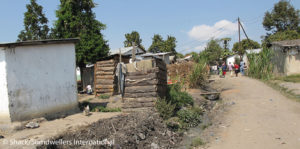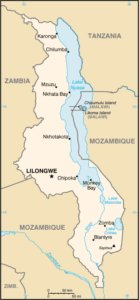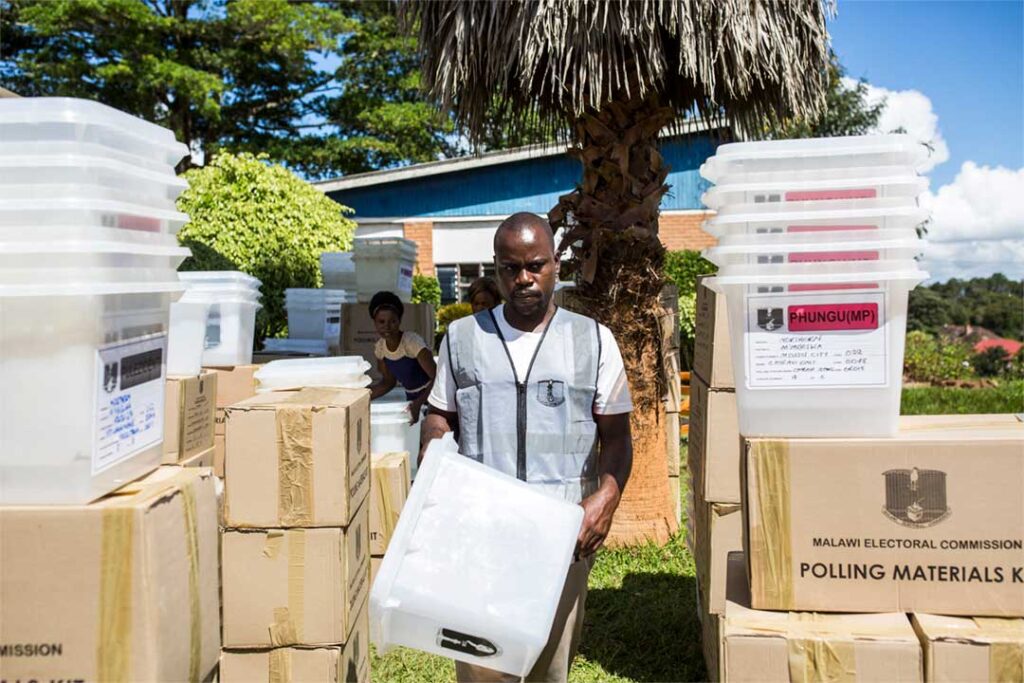Mzuzu City’s lack of municipal services leads one enterprising businessman to fill the void

“Mr Clean”, a private company that collects liquid waste in Mzuzu, as well as five other districts in the northern region of Malawi, has a fleet of five trucks. The Mzuzu City Council, however, has only one truck, which has not hit the road for about five years. The council says it cannot afford a $240 repair bill.
Mzuzu has no sewage system, so the “Mr Clean” collects effluent from residents’ septic tanks—a service the council has abandoned. The company, which started operations in 2003, has now procured two more trucks from the UK and plans to venture into solid waste management. “The idea is to mix bio-degradables with liquid waste to make compost manure,” says the company’s managing director, Yona Mkandawire, who is also a city councillor. “It’s all about value addition.”
Declared a city in 1985, Mzuzu serves a population of over 170,000 residents, according to the 2011 population and housing census. A government-appointed chief executive officer, supported by eight technical departments, heads the council’s administrative functions. The city’s political structures include a member of parliament for Mzuzu City Constituency, the mayor and 15 councillors, each responsible for one of the city’s 15 wards. They are all elected officials.
Improving service delivery in Malawi’s 35 local governments has, officially anyway, been on the country’s agenda since the May 2014 presidential, parliamentary and local government elections. Malawians had last voted in local elections in 2000. However, following the elections, service delivery in Malawi’s 35 local governments declined because of incessant infighting and rows between MPs, councillors and members of local secretariat staff.
“It’s a question of who has the power and authority. Councillors as elected officials think the voters bestow on them overwhelming or sweeping powers. While local secretariat staff, by virtue of appointment by central government, also want to flex their muscles,” political analyst Boniface Dulani told the local Sunday Times newspaper.
Social commentator Dan Msowoya, meanwhile, thinks the clash is structural and the result of a legal logjam created by a difference in the powers accorded to different levels of government by the constitution. “MPs enjoy more autonomy than their counterparts, the ward councillors. [MPs] do not report to the executive, unlike the ward councillors, who[se powers] are subject to the ministry of local government and rural development,” says Mr Msowoya.
Moreover, the quality of local government had already declined dramatically during the years when no local elections were held. According to an EU report published in 2013, members of successive governments and legislatures “thwarted” local elections, fearing they would produce “future challengers of parliamentary seats”. For a local authority such as Mzuzu City Council, the results are clear.
The city has failed to collect about $3.4m in rates, rents and fees from its residents over the last 10 years, for instance. “We don’t collect 100% of our budgeted revenue. We have averaged [between] 45 [and] 80% [in that period] and our service delivery is proportionate to what we collect,” says Victor Masina, the council’s head of administration, who doubles as its spokesperson.
The council has tried to use a variety of legal methods, as well as more forceful measures—including sealing premises and auctioning properties in order to recover revenue—but it has lost many of the cases in court. Residents have always argued that they see no reason to pay because the council offers no services in return. In many instances, the courts side with local residents, agreeing that councils are failing to provide services.
In 2013, for instance, the High Court in Mzuzu ordered the Mzuzu City Council to hand back a house it sold illegally after the owner failed to pay city rates, saying the council had not been lawfully constituted as a local government authority after March 2005 and hence could not exercise any powers conferred by law. Government suspended local councils in 2005, after which local government toed the line of central political authority. At the same time, there was a pile-up of administrative functions to the central authority.
By law, the council is supposed to provide the following services: infrastructure development such as roads, bridges and street lighting; public health services; premise inspections; vector control; emergency services; funeral services; and garbage collection and disposal. But the council stopped collecting refuse in its 15 townships 20 years ago, forcing residents to improvise their own waste management systems.
It only collects refuse in the Central Business District and at the industrial site at Luwinga. Even in these areas, the collection is erratic; overflowing skips can stand for days and weeks without being collected and emptied. More generally, experts believe that local governments’ service delivery in the areas of health, education, water and sanitation in Malawi is at 30% of full delivery.

Back in Mzuzu, opinions differ as to the causes of poor service delivery. Mr Mkandawire, the entrepreneur and councillor—as well as vice chairperson of the city’s health committee—says that the council’s problems are “not financial” but due to “poor planning and misallocations of resources”. Mr Masina says that the problem is caused by citizens failing to pay their local rates and taxes. “Residents are abdicating their legal obligations as citizens to pay what they owe us,” he says.
Malawi attained its independence from Britain in 1964 under a one-party political system headed by the late Dr Hastings Kamuzu Banda and his Malawi Congress Party. During his 31-year reign, Dr Banda did not allow general elections. Instead, he appointed members of parliament as well as local councillors.
As in many newly independent African countries at the time, Dr Banda’s new administration believed that a heavily centralised mode of decision-making was key to rapid socio-economic advancement. Malawi’s district councils were gradually eroded of their autonomy and progressively divested of their powers, functions and responsibilities.
This changed after the 1994 elections, when a new political party, the United Democratic Front (UDF), emerged victorious under the leadership of by Bakili Muluzi. The country adopted a new constitution, which included the devolution of administrative and political authority to local government. Guided by this new constitutional order, the new government embarked on a comprehensive review of the system of local government, leading to the enactment of a new Local Government Act in 1998 and the adoption of a new and comprehensive decentralisation policy in October of the same year.
Malawi’s legal framework currently provides for the existence of functionally autonomous, democratic and authoritative local governments, but successful decentralisation is effectively dependent on the central government’s political commitment to the process, according to Mr Dulani.
In August, 2015, Kondwani Nankhumwa, the minister of local government and rural development insinuated that he would discipline the mayor of Mzuzu and other councillors for taking an official trip to China without his approval. But the mayor, William Mkandawire challenged Mr Nankhumwa, saying he had no legal mandate to approve his official travel, or to institute disciplinary proceeds against him.
“The mayor is answerable to his people and does not have to wait for the ministry to summon him or discipline him,” said Chris Kangómbe, principal secretary for local government and rural development.
Notwithstanding the constitution—or indeed, electoral pledges—the central government also appears to enjoy asserting what it deems to be its authority. On many occasions, for instance, it has commandeered official vehicles used by Mzuzu mayor or his deputy for use on its own programmes or activities, rendering the local officials immobile and unable to discharge their duties, as reported by the Nyasa Times, a Malawian online newspaper.
Mr Dulani notes that the implementation of an effective local government system in Malawi is further undermined by deficiencies in the Local Government Act itself. The Act deals in great detail with functional issues of local government, he says, but it does not spell out the institutional relationships between national ministries, line ministries and the evolving local government structures.
The result is a large gap between the legal framework of the constitution and its implementation in the form of a policy of decentralisation. Enterprising businesspeople like Mr Mkandawire have spotted the gap and are jumping to fill it—with private services.
“We did not enter into any partnership with ‘Mr Clean’,” the Mzuzu administrator, Mr Masina admitted to Africa in Fact. “He just saw an opportunity, because of our constraints, and he filled the void.”




